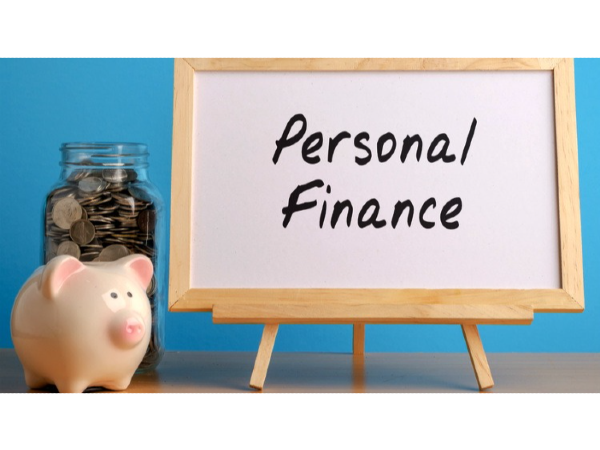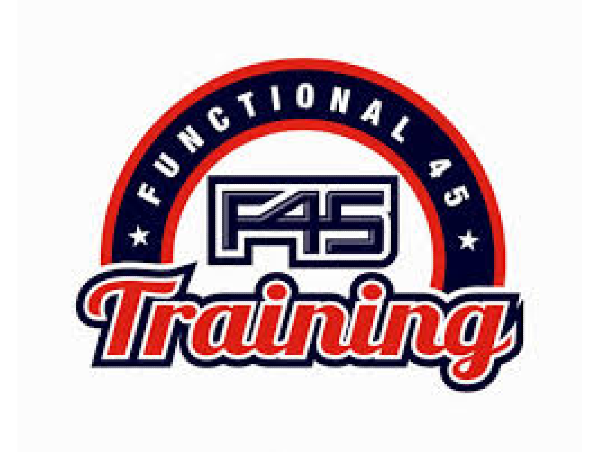Personal finance includes understanding expenses, creating a budget, retirement savings, and investing basics. You do not have to be an expert to improve your financial health. It requires some self-discipline but is not extremely challenging.
The gatekeeper to successfully managing your money is your mindset and mentality. Financial experts and the media make personal finance seem like rocket science. Some aspects are complicated, but the majority are not. Those who are not successful tend to be in denial about their financial situation, be in their 20s or 30s when financial education is not a priority, and they will worry about it later. Dedication to managing money and understanding personal finance begins with the proper mentality.
How to Learn Personal Finance
Most people know they should invest, have an emergency fund, and save for retirement but fail to do so. Nothing changes unless you are willing to let go of the misconception that personal finance is 'too hard.' The steps to follow when you are in the proper mindset for learning about money include
- Create financial goals
- Devise a spreadsheet
- Read personal finance books related to your goals
- Read blogs about personal finance
- Open an investment account
- Listen to someone who has successfully mastered their finances
- Make use of money tools
Creating Goals
If you don't know your financial goals, it isn't easy to know where to begin learning and why you want to in the first place. The more understanding and motivation you have, the better it is when putting in the work. Ask yourself what you want to change financially. How will the change benefit you now and in the future?
Spreadsheet
The Spreadsheet mentioned above is used to simplify and organize data that includes
- Salary
- Take-home pay
- Monthly expenses
- Savings, if any
- Investments, if any
When all the information is in one location, it helps adjust goals and devise a spending plan. Many people realize how much they overspend on unnecessary things.
Personal Finance Books
Reading books about money is critical, especially about finances. Not all books on the subject are boring. Some books make learning easier. It is suggested to read one to two hours per week about money. Here are some suggestions
- Your Money or Your Life - Joe Dominguez and Vicki Robin
- I Will Teach You to Be Rich - Ramit Sethi
- The Millionaire Next Door - William D. Danko
- MONEY Master the Game: 7 Simple Steps to Financial Freedom - Tony Robbins
- Rich Dad, Poor Dad - Robert Kiyosaki
Finance Blogs
Reading this article means you are taking one of the necessary steps in learning about personal finance. Finance blogs expand your viewpoints and knowledge. Not all are 100 percent accurate or have information related to your situation.
Do further diligence before following direct financial advice if a blog resonates with you. Blogs can help you understand and think differently about personal finance from people other than experts and authors in the industry.Reddit has various personal finance communities you may find helpful. Do not follow threads and topics blindly. Use what you read as a tool to aid in learning about money.
Investment Accounts
It may seem strange advice to open an investment account when you know very little about investing. Regardless of the institution you choose, it costs nothing to open an account, and you do not have to fund it immediately. However, you can contribute a small sum to begin learning if you so choose.
People tend to be better learners when they practice what they read. Opening an account gets you familiar with how the account works, understanding fund types, and learning investment terminology. Do not put all of your savings in or risk investing in stocks when you are a beginner. The goal is to learn the steps to take to understand how things work. Vanguard is a suggested brokerage firm that offers some unique investment services.
Interviews of Well-Known Money and Financial Experts
Like blogs, do not follow advice from well-known people blindly. Many express ideas with which you agree; others will not. What you pick up is how to begin to speak about money and form a mindset of your own by listening to discussions and interviews. Some popular names are Tony Robbins, Warren Buffet, and Dave Ramsey. They are not experts but provide exposure to different finance steps, strategies, and ideas. Watch them on YouTube or listen to their interviews.
Talking to Someone Who Successfully Mastered Their Finances
Often the best knowledge and advice come from those who have a handle on personal finances. It could be a close friend, a family member, or a colleague. Beware of any advice that suggests significant investments and promises of getting rich. You want people who have a proven track record of success and knowledge. They help motivate and teach you about what worked for them.
Money Tools
As you begin to make wiser financial decisions, there are tools to help manage money effectively. Some are useful for tracking financial data; others help understand more about money. Some of the best are
Acorns - An app to help develop better saving and investing financial habits. The service invests your spare change in Exchange-Trade Funds (ETFs) that are easy to trade, transparent, and tax-efficient. It also offers advice and many expert articles to expand your knowledge.
Blooom - Helps understand aspects of a 401k. The platform provides recommendations and insights into a retirement account.
Personal Capital - Keeps track of your investments, cash flow, and net worth. It provides advice on becoming more financially aware and ensures you are taking the right path.
YNAB - (You Need a Budget) The platform makes sense of spreadsheets and budgets to help you master personal finance.
Personal Capital and Bloom are free. You can try YNAB free for 34 months.














Personal finance includes understanding expenses, creating a budget, retirement savings, and investing basics. You do not have to be an expert to improve your financial health. It requires some self-discipline but is not extremely challenging.
The gatekeeper to successfully managing your money is your mindset and mentality. Financial experts and the media make personal finance seem like rocket science. Some aspects are complicated, but the majority are not. Those who are not successful tend to be in denial about their financial situation, be in their 20s or 30s when financial education is not a priority, and they will worry about it later. Dedication to managing money and understanding personal finance begins with the proper mentality.
How to Learn Personal Finance
Most people know they should invest, have an emergency fund, and save for retirement but fail to do so. Nothing changes unless you are willing to let go of the misconception that personal finance is 'too hard.' The steps to follow when you are in the proper mindset for learning about money include
Creating Goals
If you don't know your financial goals, it isn't easy to know where to begin learning and why you want to in the first place. The more understanding and motivation you have, the better it is when putting in the work. Ask yourself what you want to change financially. How will the change benefit you now and in the future?
Spreadsheet
The Spreadsheet mentioned above is used to simplify and organize data that includes
When all the information is in one location, it helps adjust goals and devise a spending plan. Many people realize how much they overspend on unnecessary things.
Personal Finance Books
Reading books about money is critical, especially about finances. Not all books on the subject are boring. Some books make learning easier. It is suggested to read one to two hours per week about money. Here are some suggestions
Finance Blogs
Reading this article means you are taking one of the necessary steps in learning about personal finance. Finance blogs expand your viewpoints and knowledge. Not all are 100 percent accurate or have information related to your situation.
Do further diligence before following direct financial advice if a blog resonates with you. Blogs can help you understand and think differently about personal finance from people other than experts and authors in the industry.Reddit has various personal finance communities you may find helpful. Do not follow threads and topics blindly. Use what you read as a tool to aid in learning about money.
Investment Accounts
It may seem strange advice to open an investment account when you know very little about investing. Regardless of the institution you choose, it costs nothing to open an account, and you do not have to fund it immediately. However, you can contribute a small sum to begin learning if you so choose.
People tend to be better learners when they practice what they read. Opening an account gets you familiar with how the account works, understanding fund types, and learning investment terminology. Do not put all of your savings in or risk investing in stocks when you are a beginner. The goal is to learn the steps to take to understand how things work. Vanguard is a suggested brokerage firm that offers some unique investment services.
Interviews of Well-Known Money and Financial Experts
Like blogs, do not follow advice from well-known people blindly. Many express ideas with which you agree; others will not. What you pick up is how to begin to speak about money and form a mindset of your own by listening to discussions and interviews. Some popular names are Tony Robbins, Warren Buffet, and Dave Ramsey. They are not experts but provide exposure to different finance steps, strategies, and ideas. Watch them on YouTube or listen to their interviews.
Talking to Someone Who Successfully Mastered Their Finances
Often the best knowledge and advice come from those who have a handle on personal finances. It could be a close friend, a family member, or a colleague. Beware of any advice that suggests significant investments and promises of getting rich. You want people who have a proven track record of success and knowledge. They help motivate and teach you about what worked for them.
Money Tools
As you begin to make wiser financial decisions, there are tools to help manage money effectively. Some are useful for tracking financial data; others help understand more about money. Some of the best are
Acorns - An app to help develop better saving and investing financial habits. The service invests your spare change in Exchange-Trade Funds (ETFs) that are easy to trade, transparent, and tax-efficient. It also offers advice and many expert articles to expand your knowledge.
Blooom - Helps understand aspects of a 401k. The platform provides recommendations and insights into a retirement account.
Personal Capital - Keeps track of your investments, cash flow, and net worth. It provides advice on becoming more financially aware and ensures you are taking the right path.
YNAB - (You Need a Budget) The platform makes sense of spreadsheets and budgets to help you master personal finance.
Personal Capital and Bloom are free. You can try YNAB free for 34 months.